Live on the homepage now!
Reader Supported News
In principle, voters should judge politicians by their actions; they should support politicians who pursue policies that help them, oppose politicians whose policies would hurt them. To do this, however, voters should have a reasonably good idea of what policy is doing.
Unfortunately, when it comes to economic policy — which should be the easiest kind of policy to evaluate, since its effects are visible in everyone’s daily life — there are few reasons to be optimistic about the relationship between policy and public opinion.
In a sensible world, voters would have both a reasonably accurate picture of what’s happening in the economy and a basic understanding of what aspects of the economy are under politicians’ control. In the world we live in, neither of these things is true.
Start with the state of the economy. You might be tempted to assume that in a world in which getting and spending occupies a large part of everyone’s life, people would have a pretty good sense of how the economy is doing, even if they aren’t familiar with national income accounting. In reality, however, economic perceptions are largely shaped by media coverage — and, increasingly, by partisanship.
Indeed, the role of partisan skew has gotten so large recently that the Michigan Survey of Consumers, probably the most influential gauge of economic perceptions, highlighted it in its most recent data release; you might say that the Michigan Survey has warned us not to trust the Michigan Survey.
When the White House changed hands, Democrats began offering a somewhat more positive assessment of the economy, while Republicans became vastly more negative. In fact, Republicans now have a more negative assessment of economic conditions than they had in March 2009, the depths of the financial crisis, when the unemployment rate was 8.7% and the economy was losing 800,000 jobs a month.
You might be tempted to say that this divergence in part reflects differences in the kind of people who vote for the two parties: Small-business owners, who are strongly Republican, are suffering from labor shortages, while low-paid workers, who tend to vote for Democrats, are experiencing above-average wage gains.
But other data show a huge divergence between what people say about the state of the economy, which is quite negative on average, and what they say about their own personal finances, which is fairly positive.
This divergence suggests that people’s views on the economy reflect what they’re seeing on often partisan news media and what their politics say should be happening, rather than what they themselves are experiencing.
So many voters seem to have skewed perceptions of economic reality. Furthermore, to the extent that they see genuine problems, they may not be clear about which problems politicians can solve and which they can’t.
Take the price of gasoline, which has risen about $1.50 a gallon from its pandemic lows.
Higher gas prices represent a real hardship for many Americans — and historically voters have seemed to blame the president when gas prices go up. Yet presidents have very little influence on prices at the pump.
In the current episode, what’s driving gas prices is a surge in the global price of crude oil.
Crude is up more than $60 a barrel. And since there are 42 gallons in a barrel, this means that the price of the crude oil used to make a gallon of gasoline has risen by $1.50 — basically accounting for all of the rise in the price to consumers. That is, developments outside the control of any president are driving a price rise that is surely one factor in President Joe Biden’s approval ratings.
So we’re living in a nation with many voters who seem to have both a distorted view of the state of the economy and false beliefs about what aspects of the economy politicians can affect. How is democracy supposed to function well under these conditions?
Just to be clear, I’m not condemning voters for not being economic experts. People have children to raise, jobs to do, lives to live. Expecting them to be sophisticated policy analysts is unreasonable.
But the fact remains that public perceptions have become extremely disconnected from reality — economics is just one example. It’s a real conundrum. And if you’re waiting for me to propose solutions, well, not today.
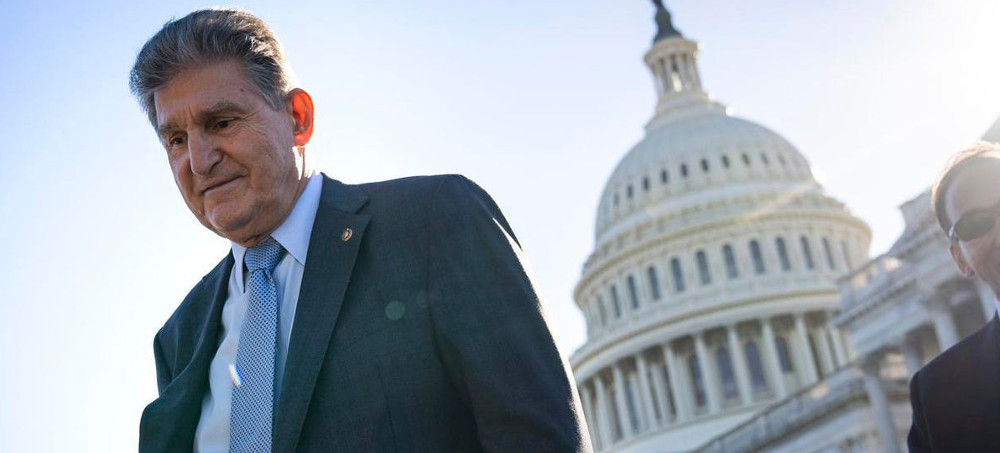 Sen. Joe Manchin (D-W.Va.) leaves the U.S. Capitol after a vote, October 27, 2021, in Washington, D.C. (photo: Drew Angerer)
Sen. Joe Manchin (D-W.Va.) leaves the U.S. Capitol after a vote, October 27, 2021, in Washington, D.C. (photo: Drew Angerer)
Over the last five years, 50 billionaires and 17 spouses of billionaires have donated to Manchin’s campaign committee or leadership PAC, according to a review of Federal Election Commission data. About one third of Manchin’s billionaire supporters live in New York, and about one third of the group’s fortunes stem from the financial industry. Among them: activist investor Nelson Peltz, who told CNBC last month that he speaks with Manchin “every week.”
Other notable donors include Bill and Melinda Gates, who donated $12,800 in 2020, before their divorce. Gates has written about favoring higher taxes on the wealthiest Americans, but Manchin helped him avoid an estimated $14.9 billion tax bill for 2020 and 2021 when the senator quashed the proposal for a billionaires’ tax last month.
Manchin, who personally owns stakes in fossil-fuel businesses and opposed President Joe Biden’s clean energy program, has received contributions from seven billionaires whose fortunes stem from oil and gas. Two of Donald Trump’s biggest donors, Energy Transfer CEO Kelcy Warren and Continental Resources chairman Harold Hamm, have donated to Manchin this year.
Nearly half of the senator’s donors supported Biden during the 2020 election, either directly or through a spouse, while about 20% supported Trump. About one third did not contribute to either presidential candidate’s campaign. While most of Biden’s donors made their contributions three or four years ago, most of the Trump donors have only started donating this year—as Manchin has helped curtail several Democratic proposals.
There are likely more billionaires on the way. “I’m going to have one of the biggest fundraisers I’ve ever had for him,” Ken Langone, a billionaire investor and Republican donor, told CNBC. “He’s special. He’s precious. He’s a great American.”
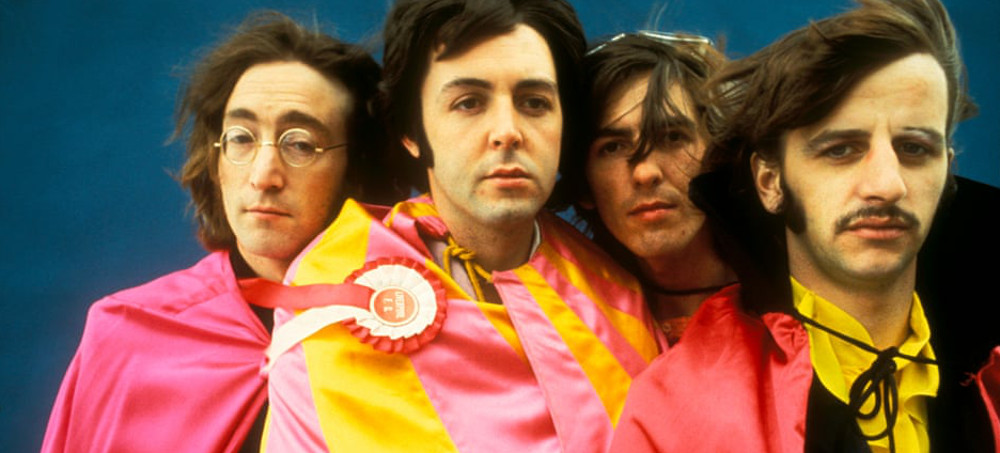 'The whole thing boggles my mind' ... Jackson on The Beatles: Get Back. (photo: Don McCullin/Eyevine)
'The whole thing boggles my mind' ... Jackson on The Beatles: Get Back. (photo: Don McCullin/Eyevine)
Ahead of his epic series Get Back, the director reveals the secrets of 60 hours of intimate, unseen footage of the Fab Four – and why it turns everything we know about their final days upside down
His four-year project is now finished – “we finally completed it on Friday,” says a relieved-looking Jackson from his home in New Zealand – and the resulting series, The Beatles: Get Back, will be released on Disney+ from 25 November. Originally envisaged as a feature film, Covid uncertainty saw plans revised. It is now three two-hour episodes, using the mass of outtakes from Lindsay-Hogg’s work on what would become Let It Be, the band’s fourth feature film.
It is striking just how much joy is contained within the vivid and eerily detailed footage. Contrary to almost all accounts over the past 52 years, John, Paul, George and Ringo are seemingly happy to be in the studio: laughing, joking, singing in the style of ventriloquists, talking about last night’s TV (Peter Cook and Zsa Zsa Gabor having a spat) and, of course, writing music. Taken at face value, it’s a unique insight into a band at work, restored to a modern, HD sheen. But, more than that, it’s a study of four of the most idolised and scrutinised individuals in the world in their prime. This is not just a music documentary, it’s a history book come to life.
“I just can’t believe it exists,” says Jackson, in the manner of a man still yet to come to terms with what he was allowed to do. “But then I can’t believe any of it – that the Beatles let Michael shoot all that footage, that it sat in a vault all this time …
“What other band in the 60s or 70s allowed themselves to be shot in such an intimate way? There isn’t another. And then I got to edit it. The whole thing boggles my mind.”
Jackson’s involvement goes back to 2017, when he was contacted by Apple Corps – the company set up by the Beatles in 1968, and which handles all of the band’s affairs – not for help with a film or TV series, but due to his interest in virtual and augmented reality technology. Perhaps inspired by the successes of the David Bowie and Rolling Stones exhibitions, the company was hatching plans for a similar Beatles museum show. Those plans, Jackson believes, have since been abandoned, but the interaction with Apple Corps led him to enquire about using the mythic Let It Be footage, unseen for half a century.
Eventually, Jackson received permission, although he had one condition: he didn’t want to make a miserable film so wanted to see all the footage first. Indeed, previous attempts at using it had ended in failure. Acknowledging its existence in the 00s, Apple Corps mooted plans to have the film restored and rereleased, but quickly shelved them.
That is perhaps unsurprising, given the context of the album and the original film. Let It Be was, as the perceived wisdom goes, a miserable experience. John Lennon referred to the sessions as “six weeks of hell”, while George Harrison has called the whole period “the Beatles’ winter of discontent”. Even the usually glass-half-full McCartney has said that in attempting to offer a fly-on-the-wall view of a Beatles album being made, what they had really done was show the world what the breakup of a band looks like.
Lindsay-Hogg’s film was finally released in May 1970, and was panned by critics and unloved by fans. With this in mind, the question of why anyone would want to sit through this footage now is a valid one. But Jackson was stunned by what he saw that first week, watching it from morning till night at Apple Corps’ London office and being brought a daily Big Mac. “I was amazed,” he says. “I was waiting for it to get really bad but it didn’t. It actually gets happier and happier as it goes.”
Knowing what he now knows, it’s a mystery to Jackson why each Beatle, along with their producer George Martin, always viewed the Let It Be sessions with such hatred – but he has a theory. “I’m convinced they were all remembering May 1970 and their reaction to the movie upon release, rather than how they felt filming it,” he says. Indeed, there are conflicting accounts – Glyn Johns, who worked as a recording engineer on the Let It Be sessions, remembers it being a funny, happy time in his autobiography, Sound Man, while Lindsay-Hogg has said similar. “But maybe they can say that,” says Jackson. “They weren’t in a band that was breaking up.”
After finishing They Shall Not Grow Old, his acclaimed first world war documentary released in 2018, Jackson got to work on Get Back. First, there was a forensic exploration of the period. He met McCartney, Starr, Sean Lennon and Harrison’s son, Dhani. He has been in regular contact with Lindsay-Hogg, went to the Savile Row rooftop where the Beatles performed their last ever gig, and even met the police officers who went up on to the roof to tell the most famous musicians in the world to stop playing.
Then came the restoration work, a frame-by-frame process to sharpen the footage for modern TVs, which took 14 people almost four years. Editing – Jackson’s favourite part of film-making – was difficult, he says, simply because of the wealth of material. At one point, he says he was happy with an 18-hour Get Back cut, but managed to whittle it down to a third of that.
The resultant six hours contain more than enough revelations, and no little sadness. That is not necessarily because of the breakup round the corner, but because it depicts four men, still in their 20s, who – having changed the world – just want to go back to being four lads from Liverpool. Tellingly, even at this point, they’re extremely nostalgic, regularly discussing their time in Hamburg in the early 60s, or playing at the Cavern in Liverpool. They reference a running joke from A Hard Day’s Night and cover early rock’n’roll classics such as Blue Suede Shoes and Shake, Rattle and Roll – anything to help them get back to where they once belonged.
Perhaps none felt more frustrated than Harrison, who briefly left the band early on in the sessions only to return on the proviso that plans for a concert in Libya were scrapped. In Lindsay-Hogg’s original, the Beatles insisted that footage of Harrison’s departure stay off-limits. In Get Back, we see the whole incident. “Anyone thinking this is going to be a whitewash, think again,” says Jackson. “I didn’t want to hold back or sanitise anything, but there was a very positive reaction from everyone, even if some of them said parts of it were stressful to watch.”
There are indeed tough moments. One tense episode is the barbed exchange between McCartney and Harrison, which was given huge prominence in Lindsay-Hogg’s film (“Whatever it is that would please you, I’ll do it,” says a weary Harrison). It features in Get Back, too, although Jackson believes editing made it more frosty in the original than it actually was. “The whole conversation was about 90 minutes, and we have eight or nine minutes of it, with that exchange in the middle,” he says. “It’s nowhere near as bad.”
While Jackson was uninterested in helping the Beatles settle scores, he was pleased to put to bed the story that Harrison left the group due to a physical fight with Lennon. Thankfully, there’s filmed evidence of the pair reading the fanciful newspaper story responsible for sparking the myth and threatening to sue the journalist.
Another moment that gave him particular delight involves McCartney discussing Lennon and the presence of his soon-to-be wife Yoko Ono in the studio (at one point we watch Lennon and Ono celebrate, mid-song, as they get the news that Ono’s divorce has been finalised). McCartney, as if gazing into a crystal ball, says: “It’s going to be such an incredible sort of comical thing, like, in 50 years’ time, you know: ‘They broke up because Yoko sat on an amp.’”
“I was stunned when I first heard that,” says Jackson. “Of course, they didn’t break up because of Yoko, but Paul can do an interview today and say it wasn’t and people will take it with a grain of salt. You can’t do better than [having] a contemporary source.”
Get Back will likely be the end of Jackson’s time working with the Beatles – mainly because there isn’t another vault full of material. But he says the hours spent on the film have only increased his respect for John, Paul, George and Ringo.
“Now, they are our grandparents or great-grandparents,” he says. “But here, John and Ringo are 28, Paul is 26 and George is 25, and you never once feel this footage is 52 years old. I’ve always thought their music transcends generations, but this will make them seem young again.”
Episode one of The Beatles: Get Back streams on Disney+ from 25 November, with subsequent episodes on 26 and 27 November
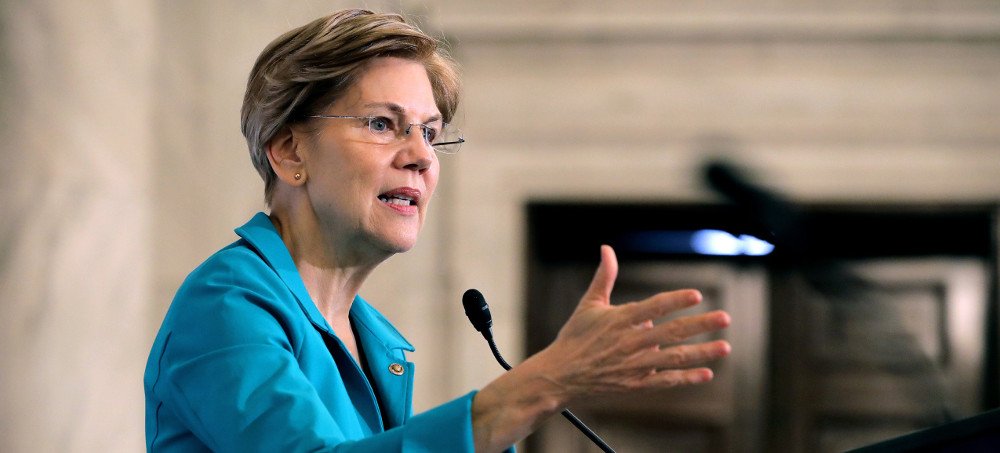 Sen. Warren told Pod Save America that Biden should use his executive powers to cancel student debt and legalize marijuana. (photo: Chip Somodevilla/Getty)
Sen. Warren told Pod Save America that Biden should use his executive powers to cancel student debt and legalize marijuana. (photo: Chip Somodevilla/Getty)
Warren, a leader in fighting for student-loan reforms and forgiveness and for decriminalizing marijuana, spoke to Pod Save America on Thursday explaining how the two issues are connected. She said that student debt has "a powerful racial justice issue to it," because it disproportionately impacts Black borrowers, and the issue is the same for marijuana offenses: there are racial disparities in the enforcement of cannabis laws.
"What's your best resource as a nation? It's your people," Warren said. "These people who should be part of our economy, part of our society."
Warren called on Biden to use his executive powers to cancel student debt and legalize marijuana, saying it would be "the single best opportunity for the President of the United States to help close the Black/white wealth gap."
"So there you are, Joe Biden," she said. "Two things you can do for our economy, for racial justice. We just need your signature on two different pieces of paper."
In October, Warren and New Jersey Sen. Cory Booker called on the Department of Justice to decriminalize cannabis and remove it from the federally-controlled substances list. Last week, Warren joined a few of her Democratic colleagues in calling on Biden to use his executive authority to pardon all people convicted of federal non-violent cannabis offenses.
During his campaign, Biden promised to legalize marijuana and said that "everyone [with a marijuana record] should be let out of jail, their records expunged, be completely zeroed out." Warren and her colleagues asked Biden to fufill his promise and "act swiftly on behalf of the countless Americans punished by the country's senseless cannabis laws."
Similarly, Biden promised during his campaign to sign legislation to cancel $10,000 in student debt, but Warren has remained adamant that legislation is not the route to go and the president can get the job done immediately with the stroke of a pen.
As Insider has reported, Biden's administration says it is examining the president's legal ability to fulfill Warren's proposal of $50,000 in student-debt cancellation per borrower, but recently released documents found that Biden has known whether he can legally cancel that amount since at least April.
And with the pandemic pause on student-loan payments lifting in two months, Warren and other Democrats are keeping pressure on the president to cancel student debt before 43 million federal borrowers are thrown back into repayment.
"Cancelling $50,000 in student debt would completely wipe out student loans for 84% of borrowers, including more than 3 million borrowers who have been repaying their loans for more than 20 years," Warren previously told Insider. "This is the single most effective executive action President Biden could take to jumpstart our economy and begin to narrow the racial wealth gap."
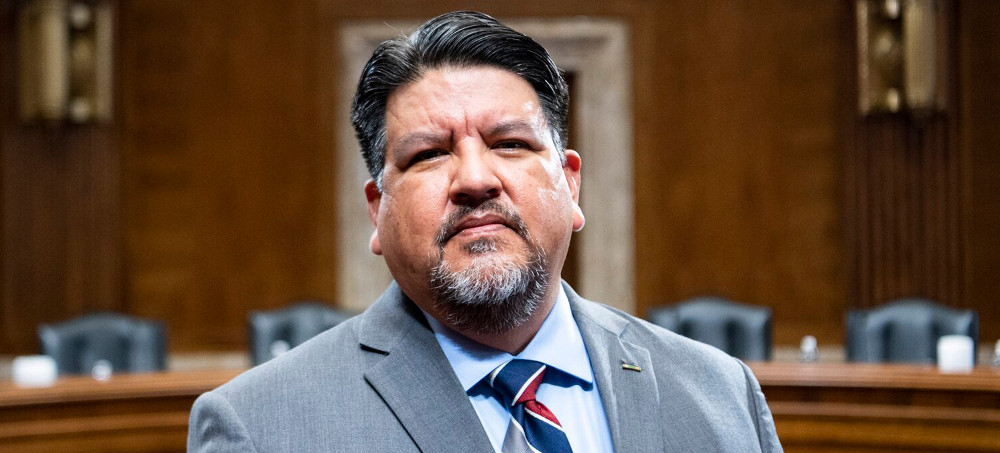 Joe Biden nominated him for head of the National Park Service. (photo: Getty)
Joe Biden nominated him for head of the National Park Service. (photo: Getty)
The confirmation of Charles F Sams III marks a symbolic moment for many Indigenous communities
Sams, an enrolled tribal member of the Confederated Tribes of the Umatilla Indian Reservation, received unanimous consent by the US Senate on Thursday after being nominated by Joe Biden in August.
Sam’s confirmation comes nearly 150 years after US leaders began the practice of establishing national parks upon ancestral lands that were often violently seized from Indigenous communities.
Now, with the park service managing more than 400 areas across every state, along with the District of Columbia, American Samoa, Guam, Puerto Rico and the Virgin Islands, some Indigenous leaders see Sams’ appointment as a potential path toward healing from old but deeply rooted wounds.
“I see this as an opportunity to reconcile that past, to heal that past, and to recognize the deep knowledge and wisdom that a Native American brings to that post,” said Fawn Sharp, president of the National Congress of American Indians and vice-president of the Quinault Indian Nation.
In 1872, President Ulysses S Grant signed the Yellowstone National Park Protection Act into law, creating the country’s first national park. The establishment of this site and many others in the ensuing years have been hailed as a triumph, but came at a cost.
In an interview with the Guardian, Jeanette Wolfley, a former University of New Mexico School of Law professor, explained that members of the Shoshone-Bannock Tribes once inhabited the area now known as Yellowstone national park. She said the park’s establishment had had a “devastating” effect on the community as members were barred from returning.
Today, some tribal reservations actually overlap with national park spaces. For example, the Canyon de Chelly national monument is located within the Navajo Nation.
Recognizing the history of these parks, Jonathan Jarvis, the last Senate-approved National Park Service director (he left the post in 2017), said over the last 20 years, there had been an effort by park service leaders to establish stronger relationships with Indigenous residents. During his tenure, for example, the agency restored the rights of traditionally affiliated nations to collect plants within a park’s boundaries.
Sams, who has over 25 years of experience working in state and Indigenous governments as well as the non-profit natural resource and conservation management fields, could expand on this work.
Jarvis said Sams would be responsible for implementing Biden’s park service agenda and would probably need to address such key issues as the parks’ major maintenance backlog and infrastructure needs, the impact of the climate crisis on these spaces and the parks’ response to Covid. But he will also have the opportunity to set his own vision for the parks.
He could further boost Indigenous nations’ ability to access key swaths of traditional vegetation by encouraging park officials to reach out to them directly to help establish collection agreements, explained Jarvis. And, although the park service already allows Indigenous people to access these spaces for ceremonies, he could issue a director’s order making this process easier.
Jarvis said there was huge potential for Sams to “look where there are opportunities for true co-management, true stewardship in partnership with tribes” of these national park spaces.
Last month, Sams said in a statement as part of his nomination hearing in front of the Senate energy and natural resources committee: “If confirmed, I will bring this spirit of consultation to my service as director. I look forward to consulting with neighboring communities, stakeholders, local, state and tribal governments, and members of Congress, even when the conversations and topics are challenging.”
But for some Indigenous people, healing from historical injustice is not simply a matter of boosting consultations or access to national parks; it’s a matter of returning the lands.
Sharp, president of the National Congress of American Indians, said she would like to see national parks returned to Indigenous people. But she cautioned that returning these spaces would need to be an individualized process.
“Tribes are unique and distinct. And the national parks in some parts of the country may have tribal nations who are prepared and ready to assume management over those and others may not,” she said.
Kat Brigham, chair of the Confederated Tribes of the Umatilla Indian Reservation board of trustees, said she was extremely happy at the prospect of Sams taking his new position. She said she expected him to lead from “the tribal perspective”, which she described as “taking care of the land, so the land can take care of you”.
She said she hoped to see him help to spread awareness of the true history of these sites. She gave the example of Celilo Falls in Oregon, which was once a great gathering space for Indigenous people.
“He knows, for decades, that the tribes have been trying to get the federal and state agencies to start looking at things from a tribal perspective,” she said. “I think he will be asking us a lot more questions. And they’ll be involved more.”
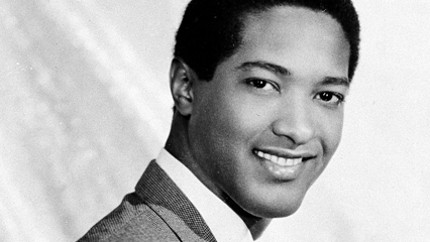 The legend Sam Cooke. (photo: Sam Cooke Archives)
The legend Sam Cooke. (photo: Sam Cooke Archives)
Lyrics Sam Cooke, A Change Is Gonna Come.
Written by Sam Cooke.
From the 1964 album, Ain't That Good News.
I was born by the river in a little tent
Oh and just like the river I've been running ev'r since
It's been a long time, a long time coming
But I know a change gonna come, oh yes it will
It's been too hard living, but I'm afraid to die
'Cause I don't know what's up there, beyond the sky
It's been a long, a long time coming
But I know a change gonna come, oh yes it will
I go to the movie and I go downtown
Somebody keep tellin' me don't hang around
It's been a long, a long time coming
But I know a change gonna come, oh yes it will
Then I go to my brother
And I say brother help me please
But he winds up knockin' me
Back down on my knees, oh
There have been times that I thought I couldn't last for long
But now I think I'm able to carry on
It's been a long, a long time coming
But I know a change is gonna come, oh yes it will
 An aerial view shows a deforested area of Amazonia rainforest in Labrea, Amazonas state, Brazil, in September 2021. (photo: Mauro Pimentel/Getty)
An aerial view shows a deforested area of Amazonia rainforest in Labrea, Amazonas state, Brazil, in September 2021. (photo: Mauro Pimentel/Getty)
The country's space research agency monitoring system showed that the region lost over 5,100 square miles of rainforest — comparable to about the size of the U.S. state of Connecticut — between August 2020 to July 2021, according to data published on Thursday. That's the worst annual loss since 2006, when the Brazilian Amazon shed more than 8,800 square miles.
Until President Jair Bolsonaro took office, the Brazilian Amazon hadn't recorded an annual loss above 3,000 square miles of deforestation in over a decade. Bolsonaro, who has chipped away at Brazil's environmental protections and minimized rainforest shrinkage since becoming president in 2019, has been under international pressure to reverse course.
About 1 million Indigenous people, and 3 million species of plants and animals, live in the Amazon, according to the environmental advocacy group Greenpeace.
Although Bolsonaro did not attend this month's United Nations climate conference in Glasgow, his country joined other nations in agreeing to end illegal deforestation, in addition to promising to cut methane emissions.
The report released this week, from Brazil's National Institute for Space Research's PRODES (Program for Calculating Deforestation in Amazonia) is dated Oct. 27 — four days before the start of the Glasgow summit.
"This is the real Brazil that the Bolsonaro government tries to hide with fantastical speeches and actions of greenwashing abroad," Mauricio Voivodic, the executive director for the World Wildlife Fund in Brazil, told the Associated Press in a statement after the PRODES report published. "The reality shows that the Bolsonaro government accelerated the path of Amazon destruction."
Follow us on facebook and twitter!
PO Box 2043 / Citrus Heights, CA 95611







